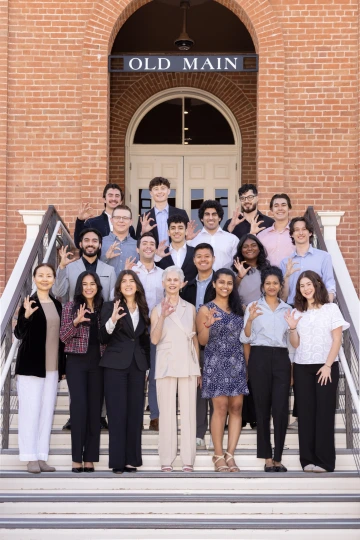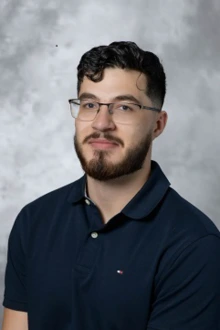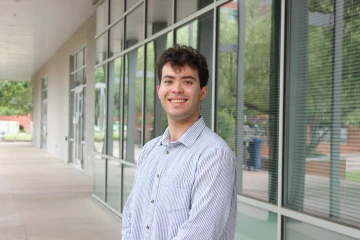The New Class
Two students entering the College of Medicine – Tucson are using their scholarships to focus on helping those in need.

When Arselan Madlol ’20 ’26 moved to Tucson from Syria and, before that, Iraq, he noticed something: In America, you could get a doctor.
“Where I grew up, there was a lot of health disparity,” he says. “You couldn’t even see doctors, because there weren’t as many doctors. It was more like traditional medicine, or anything you could get your hands on.”
The experience opened his eyes not just to the global inequities in health care but also to the profound impact medical professionals can have on a community and region. “I knew it was what I wanted to do,” he says.
After finishing his bachelor’s degree in physiology, Madlol was accepted to the Pre-Medical Admissions Pathway at the College of Medicine – Tucson, a 13-month program designed to support students facing obstacles to medical school. Participants gain guaranteed admission to the College of Medicine – Tucson when they complete the program.
“One thing I’m really passionate about is helping those that are underserved in medicine,” he says. “Maybe they don’t necessarily know where to go and get health care. Maybe they don’t have insurance to get health care.”
He hopes to either work at a clinic for underserved populations or start one of his own. “Basic stuff,” he says. “Medication, flu shots, immunization. That’s my career aspiration in the end. Especially in Arizona and in Tucson, specifically, we have such a huge range of individuals without insurance. [The clinics] are really helpful.”

Madlol’s tuition for medical school is being paid in part through an extraordinary gift to the College of Medicine – Tucson given earlier this year by Patricia Gerleman on behalf of her late husband, Jim, and Jim’s late brother, John. Read more about the Gerleman gift.
The Gerlemans’ gift, which totals $14.2 million, also will support a P-MAP scholarship for Armando Romero-Garma ’22 ’25, a first-generation student from Nogales, Arizona. Romero-Garma started volunteering as a translator in a children’s clinic in Nogales, Sonora, when he was in middle and high school, later translating at a clinic in Rocky Point, then working part-time as a clinical research assistant for Banner Health while getting his master’s in cellular molecular medicine from the U of A.

“Having that public health background gives me a very different perspective on everything,” he says. “It’s not just looking at the disease and the patient in the moment, it’s looking at a more holistic image of what’s going on. Why aren’t they able to get medications? [Because] they live five hours away. The mom works two to three jobs. They have so many other family members.”
The point isn’t just to provide diagnosis and treatment but to bridge a gap between patient and provider in an overstressed system. “Right now, [in] Arizona, we’re suffering a physician shortage,” he says. “It’s a huge impact on society, not just within Tucson, but all of Arizona, the rural communities. Being able to establish a little bit more presence of individuals and future physicians that come from these communities, that are able to understand these communities — I think that’s quite impactful.”
Both Madlol and Romero-Garma are grateful for the opportunity and for the gift that provided it. “We don’t have to take out as many loans now,” Madlol says. “I can focus more on my education and learning instead of interest rates.”
“Having a program such as the P-MAP around — it’s monumental, in my opinion, especially for individuals like myself that come from areas where they didn’t see [medical school] as an option,” says Romero-Garma. “And having individuals like the Gerleman family being able to donate and contribute to programs like this — it’s extraordinary.”

